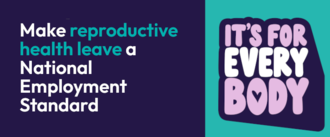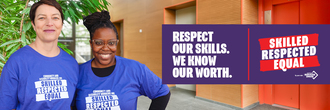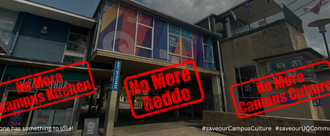- Featured
- Asylum Seekers and Migrants
- Climate and Environmental Justice
- Disability Justice
- Economic Justice
- Education
- First Nations Justice
- Health and Medicare
- International Solidarity
- LGBTIQA+ Rights
- Media and Arts
- Occupational Health and Safety
- Public Services
- Public Transport
- Racial Justice
- Social Justice
- Women's Rights
- Workers' Rights
- More
-
Make Reproductive Health Leave a National Employment StandardWhy Reproductive Health Leave is Essential • Promotes Health and Well-being: Ensures workers can manage their reproductive health without compromising their employment. • Fosters Inclusivity: Recognises the diverse health needs of all employees, promoting a fair and supportive workplace. • Encourages Preventative Care: Allows time for necessary health screenings and treatments, reducing long-term health risks. Take Action Now Sign this petition to advocate for the inclusion of reproductive health leave in the National Employment Standards. Your support is vital in creating workplace rights that values the health and well-being of every body.3,375 of 4,000 SignaturesCreated by It's For Every Body
-
Respect Our Skills: Community & Disability Workers Deserve Better!Community and disability workers provide critical support and care to people in some of the most vulnerable situations in our communities. We make a difference every day and deserve to be paid fairly for the work we do. We are advocates, support workers, carers, counsellors, case workers and so much more to the clients and communities we work with. Recent groundbreaking ASU/UNSW research found that: • Two-thirds (67%) of community and disability workers are under-classified. • Many are required to perform tasks beyond their pay grade and face limited career progression. • Financial pressures are severe, with 1 in 3 needing help from family or friends to meet living costs. For too long, community and disability workers have been overworked, undervalued and underpaid. ASU members are standing together to ensure that community and disability workers are valued, and respected, with fair pay and secure careers. We need everyone, and all governments to stand with us. Sign the petition today!5,311 of 6,000 SignaturesCreated by Australian Services Union
-
Stop the Country Road cover-ups!The South African boss of Woolworths holdings (owner of Country Road), Roy Bagattini, recently directed Country Road Group staff to refrain from talking publicly about serious allegations of sexual harassment and bulllying in the company. Country Road, like so many other companies before them, has responded to these concerns by intimidating workers and covering up their complaints. It's no way to run a business, and it's certainly no way to end gendered violence in the workplace. Workers across Victorian are campaigning in union to to end this culture of cover-ups and victim-blaming, in part by working to ban the use of non-disclosure agreements (i.e. cover-up clauses) in cases of workplace sexual harassment. Country Road's customers and the general public have a right to know if their purchases are being used to prop up a business with a toxic workplace culture.1,050 of 2,000 Signatures
-
Save our UQ CommunitySince 1961, the UQ Union Complex has served as the heart of UQ's campus community at St Lucia. Over the decades, its activities have profoundly influenced Queensland's culture and politics and hold significant historical importance. Therefore, it has always been in the community's interest to preserve and maintain the space with interior refurbishments rather than a complete transformation, which has been repeatedly proposed. Regrettably, when such repair and maintenance requests have been submitted by the UQ Union, UQ has been slow to respond or ignore the request, resulting in the exacerbation of building damage. When they do take place, they take an unacceptably long time to fix the problem (for example, the Schonell theatre). So, it is no surprise that since 2018, UQ's agenda has focused more on its interest in redeveloping the Union Complex primarily to enhance its aesthetics. Their initial attempt, likened to building a 'shopping mall' on campus, was widely criticised in 2022, leading to an announcement that they would return to 'first principles'. However, their new proposal has not undergone a comprehensive consultation process with the community. There has been a complete lack of transparency regarding the final design and the redevelopment process. Meanwhile, UQ seeks to finalise agreements through the UQ Union, insisting on maintaining confidentiality without engaging in broader consultation with the UQ and Brisbane community. What we know: UQ has been dictating space allocation within the Union Complex, which will reduce the amount of space given to our community-owned outlets. This will have a detrimental effect on the vibrant campus culture these establishments help maintain. The finalized redevelopment plans could potentially disrupt or even lead to the discontinuation of beloved establishments such as Reddo Bar, the Food Co-op shop, On a Roll bakery, and the Main Course. Furthermore, there is no provision for a full commercial kitchen to allow Kampus Kitchen to continue at its current capacity. Again, these decisions have been made without consulting the broader community, further underscoring the need for transparency and inclusive consultation. It is evident that UQ has a new vision for the future of the student commons and Union complex that appears to exclude any input from the community. Their vision risks erasing the culture and legacy of the original complex and disregarding aspects that symbolise the freedom of student expression. Moreover, it threatens to dismantle what remains of the Union Complex's role as a central hub for cultural and arts activities, including previously housing a radio station that once made it the heart of the University of Queensland.1,151 of 2,000 SignaturesCreated by UQ Community
-
Ahpra should act fairly and equitablyAhpra must operate a fair and equitable fee setting policy to enable a flexible and responsive health workforce. Failing to provide reduced fees for practitioners on parental leave shows that Ahpra doesn't 'walk the walk' when it comes to principles of equity. Ahpra has maintained its inequitable position in recent years despite numerous individual and collective representations requesting that it change course. We need your help to make this change happen! Ahpra advises practitioners who enquire about fee reduction during parental leave that they can apply for non-practising registration. But experience indicates this is not a viable or practical option because of how Ahpra operates. Reapplying for registration is expensive and time consuming, many practitioners would not be able to avoid paying annual registration anyway, and the period of time between reapplying for registration and actually being re-registered is uncertain and can be a period of many months - during which time the practitioner is unable to work as a healthcare practitioner because they are not registered. There are over 877,000 Australian healthcare workers, who are a diverse, dedicated and predominantly female workforce. Providing reduced registration fees for practitioners who are on parental leave would support a self-sustaining, fair, reasonable, flexible and responsive approach to fee setting, consistent with the principles of equity.3,849 of 4,000 SignaturesCreated by AMA Victoria
-
Stuff your International Women's Day CupcakesThis International Women's Day, we demand action from Corporate Australia: * Disclose whether human resources and management have received training in implementing the new universal entitlement to paid family violence leave * Pledge to stop using "non-disclosure agreements" that silence women who experience workplace sexual harassment. Stop covering-up workplace hazards! * Close the superannuation gap by paying super on parental leave so we can have safe and dignified retirements! * Open your books and publish your gender wage gap data. Show us what your gender pay gap really is and fix it. * Commit to secure jobs, improved flexible work and working-from-home policies that support women workers who shoulder caring responsibilities * Back programs that support women from historically marginalised and excluded communities get into good work * Respect us and be transparent about the reproductive health leave you offer staff * Support your workers to attend International Women's Day rallies around Australia!1,056 of 2,000 SignaturesCreated by We Are Union - Women
-
Respect Remote Working Autonomy for StaffProviding truly flexible work arrangements engenders staff goodwill and loyalty by: a) trusting us to make conscientious, responsible decisions about when it is more productive to work remotely and; b) acknowledging that some of us may find it more productive to work fewer days on campus at different times, for example during school terms, over semester breaks, according to our health status or cultural commitments and/or depending on the type of work we are doing at the time. By enabling less commuting, more flexible remote working options also enhances our sustainability strategy and improves work/life balance. Whereas, the VC’s proposal to work more days from campus than from home contradicts The University’s: • commitment to “support flexible working arrangements where reasonably possible” in the latest EBA (Clause 215) and explicit commitment to “providing flexible working options for all staff”; • aspiration to be an “employer of choice for people with disability”; • commitment to “equity, diversity and inclusion throughout the University”. We, the undersigned University of Sydney employees reject the Vice Chancellor’s “general expectation… that colleagues will spend more of their time on campus than working remotely.” We instead demand that management honours its commitment in the clause 215 of the Enterprise Agreement to allow professional staff to work remotely where “the staff member is able to satisfactorily complete the requirements of the role” and to also trust academic staff to choose when and how often to work on campus, thus ensuring an inclusive, progressive, supportive and productive working environment for all of The University of Sydney’s highly diverse workforce.1,193 of 2,000 SignaturesCreated by NTEU Members
-
Feminist Demands at JCUPeriod poverty is the struggle people with a period face in affording menstrual products and describes the larger economic vulnerability faced due to the increasing financial burden of period supplies. Across the world, 1 in 5 people with a period experience period poverty. Period poverty affects student’s ability to attend university and can cause people to use improvised menstrual hygiene materials that can lead to infection. This causes increased risk of infection, decreased productivity and participation, reduces education outcomes, and affects the mental health of those experiencing period poverty. We want to end period poverty at JCU and remove the barriers to education that period poverty imposes on our students. Currently we do not have up to date statistics regarding abortion in Queensland, however, it is known that between 1/4 to 1/3 of Australian women will have an abortion in their lifetime. Abortion services in Townsville have only recently been made accessible to the public after previous closure. Medical terminations of pregnancy are available via GPs or a private provider up to 9 weeks gestation and after that, Townsville University Hospital offers a surgical termination service from 9-14 weeks gestation. Women further along in their pregnancy will need to travel to Brisbane to access a surgical abortion service. Abortion still carries a lot of stigma and can cause a range of emotions for those who have had to make that decision as well as a financial and time burden. We want JCU to show support to those who access abortion and provide them with appropriate leave processes and counselling services to ensure students feel supported and can have equitable access to education following an abortion. Sexual assault and harassment effects students across Australia, including students at JCU. In a national student safety survey of JCU students it was found that 22.2% of students have been sexually harassed since starting university and 9.5% have been sexually assaulted since starting university. The numbers disproportionately effect people of minority groups, including queer students, Aboriginal and Torres Strait Islanders and those with a disability. We are aiming to eradicate sexual assault and harassment on campus to make JCU a safer place for everyone.220 of 300 SignaturesCreated by Eleanor Clark
-
We Need Both! Online and In-person options for Tertiary EducationOnline options were ‘too hard’ before 2020, and then they came within a week, and then they were taken away as quickly as they were given. Many members of our community depend on these options being available such as those who are immuno-compromised and cannot risk exposure to disease, especially when universities do not have open windows, air purifiers or a mask or vaccine mandate in the classroom. Universal Design (‘UD’) — specifically, Universal Design for Learning (‘UDL’) — is a research-backed pedagogy and curriculum framework which enables equitable access to education for all students, including students with disabilities and other students from diverse, minoritised backgrounds. For disabled students, implementing UDL would ostensibly ensure that they can ‘engage with the curriculum without having to seek adjustments’ (see ‘Recommendations for equitable student support during disruptions to the higher education sector: Lessons from COVID-19,’ Mercer-Mapstone et al 2022,). Hybrid, flexible education — also known as ‘hyflex’ education, as noted in Recommendation 2.1 of the ALSA-AMSA-NUS research report — entails offering educational delivery options for both in-person attendance and Work From Home (‘WFH’). Moreover, hyflex education can facilitate educational participation for not only disabled people but also women escaping domestic family violence (‘DFV’) or sexual assault, First Nations students in regional & rural Australia, international students, and other demographics for whom in-person attendance may not be the most safe & accessible. People from diverse backgrounds have value. Contrary to what many believe, disabled people can (and do) contribute to society and to building a better world. Imagine all the setbacks if Dr Steven Hawking couldn’t come to class because he couldn’t get his wheelchair in the door! Additionally, the tertiary education regulator, Tertiary Education Quality and Standards Agency (‘TEQSA’), has announced that they will now enforce the Education Services for Overseas Students Act 2000 (Cth) (‘ESOS’). Under ESOS in s 8.19, TEQSA is mandating that no more than a third of the education delivered to overseas students can be online or by distance. This decision from TEQSA means that if international students want to access regional, globally ranked education, they must return to Australia whilst there are COVID-19 outbreaks overseas, a rental shortage of affordable, student housing and a cost-of-living crisis. This forces numerous international students into a tricky conflict between their future and their present happiness. TEQSA doesn’t take individual complaints so the regulator cannot protect international students. That is why the government must step up. Likewise, online learning can be better for university staff. University staff with disabilities also face many of the struggles that disabled students do. Likewise, staff with caring roles for children or other dependents benefit from increased access to them by providing education online. Some universities do not have child-care options after 5pm, meaning that staff cannot afford to work a 9-5 with children because they have to rush to collect them. The higher education system relies on these staff and their incredible work to upskill the next generation.252 of 300 SignaturesCreated by NUS Disabilities

-
Pampas/Goodman Fielder: We want job security and fair wages for your workers now!Workers at Pampas have been languishing on labour-hire contracts, working full time, for 10, 15 and up to 20 years whilst being overlooked for permanent positions. Migrant workers like those at Pampas are the backbone of our food manufacturing industry. Workers across Australia are doing it tough, they need fair wages and secure jobs to survive. Pampas needs to come to the table and offer these workers a fair deal now.2,010 of 3,000 SignaturesCreated by United Workers Union
-
Zero Tolerance for Zero Action: Affirmative ConsentAfter the passing of the Justice Legislation Amendment (Sexual Offences and other Matters) 2022 Bill on 31/08/2022, affirmative consent is now law in Victoria. This amendment means that everyone has the responsibility to get active consent before engaging in sexual activity. This may include (but is not limited to) saying “yes,” as well as physical gestures like nodding and/or reciprocating removing someone’s clothes. To put it simply, there must be a “clear and enthusiastic go-ahead." The new legislation also firmly guards people from other forms of violence such as stealthing (non-consensual removal of barrier protection such as a condom) and image-based abuse (which can include, but is not limited to: deepfakes, taking, sharing or threatening to share sexual images or videos without consent). This change in law marks a crucial step in creating survivor-centered legislation, which shifts the responsibility away from survivor to perpetrator. The University of Melbourne’s Sexual Misconduct Prevention and Response Policy and their definition of consent lags behind state law. Additionally, the policy does not acknowledge stealthing as a form of violence and does not comprehensively cover the emerging issue of online image-based abuse. There is no room for victim-blaming at the University of Melbourne. Therefore, UMSU calls on the University to immediately change its policy in line with new state legislation. By doing this, it will shift the focus and burden of responsibility from the victim-survivors actions to those of the perpetrator. This change is vital to ensure we are committing to a victim-centred approach that puts justice and safety first. Support Resources: If this letter brings up any concerns for you, please reach out to the following supports: Sexual Assault Crisis Support Line (24/7): 1800 806 292 1800 Respect (24/7): 1800 737 732 UMSU Sexual Harm and Response Coordinators The UMSU Sexual Harm and Response Coordinators provide support with making complaints to the University, reporting to the police, and appropriate referrals to therapeutic services. Contact them via their webpage: https://umsu.unimelb.edu.au/support/survivors/ University of Melbourne, Safer Community Program Provides advice and support to University of Melbourne students who have been affected by sexual violence and harassment: https://safercommunity.unimelb.edu.au/153 of 200 SignaturesCreated by UMSU Inc

-
End the silence - end the misuse of NDAs!NDAs protect employers from accountability and release them from their obligations to address systems of work that allow sexual harassment to occur, enabling repeat offenders to continue and preventing workers from talking about their experiences. Victim-survivors, predominantly women, are disempowered by being forced to stay silent. To end sexual harassment at work, we need to end the silence and hold employers accountable. We need legislation to restrict the use of NDAs. They should only be used when requested by victim-survivors to protect their own confidentiality and victim-survivors should be allowed to decide to speak out later.7,428 of 8,000 SignaturesCreated by We Are Union - Women









.png)


